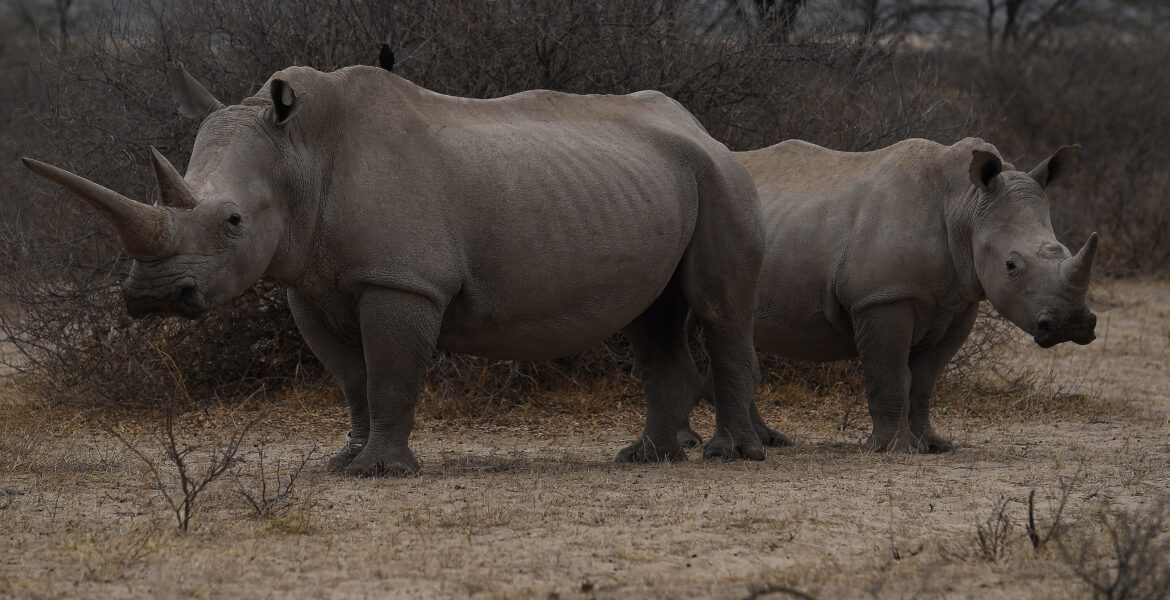- Sobozi skipped bail after he was released into the custody of a Motswana in 2018
- Most poaching incursions into Botswana, Namibia and Zimbabwe are by Zambian parties
Oscar Nkala
The Namibian man intercepted alongside a party of suspected Zambian rhino poachers that he was attempting to guide into Botswana is a repeat offender wanted in Botswana for skipping the country when he was due for prosecution for rhino poaching and illegal possession of firearms, The Botswana Gazette can reveal.
Barks Sobozi (44) was arrested by the Wildlife Protection Service (WPS) and found with two rifles, ammunition and loads of poaching accessories while his four accomplices believed to be Zambians fled to their country.
Sobozi recently appeared before Katima Mulilo Magistrate Clara Mwilima to answer charges of illegal possession of firearms with intent to poach and being an accessory to poaching.
He was denied bail and remanded in custody to March 30 to give police more time to trace his Zambian accomplices. During the trial, Morgan Saisai of WPS said Sobozi has been on their wanted list since 2018 when he returned home after skipping the border to escape prosecution in Botswana.
A few days before his arrest, a WPS team received intelligence suggesting that Sobozi would be helping members of a Zambian poaching party to transiting through Namibia to get to rhino sanctuaries of the Okavango Delta in Botswana.
“Our operatives detected four Zambian suspects who fled on contact, leaving Sobozi behind,” said Saisai. “It was established that Sobozi was the local man who guides Zambian poaching gangs to travel through Namibia to reach the Okavango Delta in Botswana.
“Sobozi is a notorious repeat offender who was arrested in Botswana in 2018 for rhino poaching but skipped the border after being granted bail and released into the custody of a Motswana. But we continued monitoring his movements until he was arrested at an illegal exit point while waiting for his Zambian accomplices.”
It is not clear if the Government of Botswana will seek Sobozi’s extradition so that he comes to face trial for poaching and breaking his bail conditions. However, some conservationists believe that efforts to track down Zambian poaching suspects are doomed to fail due to a long-standing tradition of non-cooperation from the Zambian government and law enforcement agencies in cases of rhino and elephant poaching in Botswana, Zimbabwe and Namibia.
Commenting on recent theft and vandalism of mini solar power plants that supply elephants with water on the Zimbabwean side of the Upper Zambezi Valley, the Victoria Falls-based Bhejane Trust said Zambia has failed all regional efforts to contain the poaching menace posed by its citizens in its neighbours south of the Zambezi.
“We know the (Zambian border) villages where the thieves and poachers come from and we have some names,” said Saisai. “All the villagers living along the Zambezi River in Zambia know what is going on. One good, honest investigator in Zambia can stop this instantly. Unfortunately, such a person does not exist on the Zambian side of the Zambezi. The Zambian government consistently fails to cooperate on issues affecting its neighbours along the Zambezi River.”
In a recent assessment of the threat posed by Zambian rhino and elephant poaching incursions into Zimbabwe, Botswana and Namibia,the trust said poachers enjoy total impunity as soon as they reach the Zambian bank of the Zambezi.
The organisation said the cross-border poaching syndicates enjoy ‘high-level support in Zambia where they get armed and equipped and which is a clearing house for (illicit) rhino horn and ivory shipments”.
According to a Namibian government analysis of wildlife crime arrests and prosecutions made in 2020, Zambians formed the largest group of foreign poachers with 26 arrested, mostly for rhino and elephant poaching.
Angolans made up the second largest group with 22. One Motswana and one Zimbabwean were also arrested for wildlife-related crimes in the same period.




